Rebecca Kuang’s fantasy novel, Babel, is written to appeal to a variety of reading interests, but it is sure to disturb or offend as many people as those it may entertain and delight. It’s part of that genre now known as Dark Academia. For those unfamiliar with the term, ‘Dark Academia’ usually denotes a story within an academic setting (some would use the Harry Potter Series as an example) with the possibility that students and professors may become heroes or villains. For those who have read Donna Tartt’s The Secret History, they will find some familiarity in the atmosphere and key relationships of that novel with those in Babel. Given the importance of setting in this novel, I’d like to first explore that a little before talking about some of the fantasy elements, ideas and political positions the novel takes.
Babel begins in Canton, China in 1829. A Chinese boy who will adopt the name Robin Swift lies dying of cholera. His mother has already succumbed to the disease. But Robin is rescued by an English professor of translation, Richard Lovell, who uses the magic he draws from a silver bar through the power of translated words to heal him. Lovell strikes an agreement with Robin that he will return with him to England where he will learn Ancient Greek and Latin in order to qualify for the Royal Institute of Translation, housed in the Babel tower at Oxford University.
Of course, no such building exists in historical reality. In addressing her use of Oxford as an historical setting, Kuang says in her author’s note before the novel begins:
Some may be puzzled by the precise placement of the Royal Institute of Translation, also known as Babel. That is because I’ve warped geography to make space for it. Imagine a green between the Bodleian Libraries, the Sheldonian, and the Radcliffe Camera. Now make it much bigger, and put Babel right in the centre.
Kuang provides us with a drawn map that helps to locate Babel. In the image of that map, below, I’ve given it a yellow tint. For those who are curious, you may wish to use the slider to compare modern Oxford (which I have taken from Google Earth) overlayed against Kuang’s representation. The images don’t align exactly but it gives a clear indication of Kuang’s imaginative setting. I’ve also included a street image from Google Earth on the right sidebar of the location where Kuang wishes to locate Babel.
Compare R.F. Kuang's Oxford with modern Oxford
Use the diamond to drag the view right and left to compare R.F. Kuang's map of Oxford and her placement of the fictional Babel, and modern Oxford University. Please note that due to inaccuracies in the hand drawn map and changes since the setting of this novel, some modern Oxford features align well, while others align poorly.
The name, ‘Babel’, itself, is important. In this alternative history of the British Empire it is the magic imbued by translated words working through silver which is the source of British progress and colonial power. The name is taken from the Bible. In Genesis the story of the Tower of Babel explains why the Earth’s population is linguistically diverse. The Babylonians, in an attempt to build their tower into the heavens – a symbol of their power – suffer it to be struck down by God and their unity destroyed when God curses them with many languages. The story is thematically similar to that of Adam and Eve. Adam and Eve’s eating from the Tree of Knowledge challenges the primacy of God and they are banished from Eden for their action; another kind of striking down and punishment. In Babel, Professor Playfair tells his translation students to “never forget the audacity of what you are attempting. Never forget you are defying a curse aid by God.”
In Jewish tradition the Babylonian empires represented an oppressive rule which had to be resisted. This is going back before Jews were famously persecuted by the Romans and anyone else thereafter. The Romans deposed their last Tarquin King, Lucius Tarquinius Superbus, around 509 BCE, which introduced the beginning of the Roman Republic. Babylon had already fallen to King Cyrus of Persia thirty years before that. At one time Babylon is thought to have been the largest city in the world. At its height it controlled the Fertile Crescent in the Middle East, encompassing the modern countries of Iraq, Syria, Lebanon, and Israel. In the Ancient world Babylon represented the power of empire and it was here that the Tower of Babel was supposed to have been built.
So ‘Babel’ in this novel evokes that sense of linguistic diversity, but as an historical antecedent to Kuang’s Babel of the 1830s, it also evokes the power of empire. England in the 1830s is a new Babylon and Kuang has provided it with its hubristic source of power, the Royal Institute of Translation and silver working. In this alternative history, steam technology still exists, the industrial world of Britain has progressed just as we learn in the history books, but the whole edifice is predicated upon the power of silver and the work of the Babel translators. Kuang’s conceptualisation of this process recalls Derrida’s notion of ‘différance”, in which a word can only achieve meaning in relation to its context and each word that it is not. Each word contains a panoply of possible significations which collapse in the process of constructing meaning. In the case of Babel, Babel scholars specialise in different languages, and search for pairs of words with etymologically similar roots in different languages. The value in this lies in the linguistic gap between languages: that languages are part of a lived cultural experience which makes it impossible to transliterate word for word any particular utterance or piece of writing. While words may have a similar meaning from one language to another, they are never exactly the same in their meaning, even when they share the same etymological roots. Silver is the conduit by which this process works. Transportation, construction and industry are all enhanced by the power of language worked through silver, and without it, nothing will work as well: may even stop working.
This concept of magic is a powerful amalgam of symbols which are linked to the concerns of this novel: of the wealth of the empire, represented by silver; of the hubris of the empire represented by the tower where linguistic study and silver working is conducted; of the power of language to manipulate reality and exert power; and the colonial impulse to exploit foreign resources (in this case, languages) and to promote British culture as a universal norm.
“Translation involves a spatial dimension – a literal transportation of texts across conquered territory, words delivered like spices from an alien land.”
Babel, page 106
The implicit assumption behind this is that two things can be true at once: that colonialism may be undertaken with a belief in the rightness of the thing, as well as the overt desire to control and exploit, if necessary, by force. The first resides with a belief in British culture as natural and preferred, the second with a desire to exploit British colonies like India and China for wealth. Robin, in an attempt to articulate to Professor Playfair – and thereby understand – the purpose of translation, wonders if its purpose is to bring humanity together again: to “bring that paradise again, on earth, between nations.” Robin’s musing is idealistic, and Professor Playfair’s response would seem to support this, except he asserts, “Such is the project of empire”, which suggests that unity is only desirable under British rule. It’s a point further supported by Playfair’s discussion of the ‘Adamic language’: that is, the original language assumed to have been spoken by Adam and Eve before the confusion caused by God’s curse. Rami, Robin’s friend and fellow translating student, jokingly suggests the Adamic language is Syriac, but Professor Lovell later suggests in all seriousness that,
There are those who think that the Adamic language might be English – might become English – purely because the English language has enough military might and power behind it to credibly crowd out competitors, but then we must also remember that it was barely a century ago that Voltaire declared that French was the universal language.
The emphasis on ‘become’ is Lovell’s, not mine. Lovell may believe in a purity of meaning – “a language in between, where all concepts are perfectly expressed” – but he eschews the idea of a historical Adamic language in favour of the real politic of nineteenth century gunboat diplomacy to progress Britain’s economic and cultural dominance: a situation in which Britain will become the dominant culture and language.
This is where Kuang’s idea is so ingenious. The material wealth represented by silver is tied to the linguistic and cultural wealth of language. Professors like Lovell have become interested in Asian languages, not for their beauty and richness, and for the good of knowledge, itself, but because they provide a new linguistic seam to mine at a time when European languages are becoming closer in their meanings, and therefore are less easy to exploit for the purposes of magic.
So Kuang draws us into her world through the eyes of Robin, along with Rami, an Indian boy whom he instantly befriends, Victoire, a free Haitian who has been raised in France and treated like a slave after the death of her mother, and Letty, a white English girl who never quite fits in with the group. Essentially, their story is familiar to us. It is Tom Brown’s School Days, Harry Potter and even A Wizard of Earthsea if you want. Robin, Rami, Victoire and Letty grow into their world and become increasingly aware of their power, the exploitation upon which their privileged lives are predicated and the purposes to which their knowledge will be put. They must decide whether they can support the regime that has made their lives so comfortable, or call it out and try to do something.
In short, the story has more to it than its quaint English boarding school vibes. Kuang has called her novel ‘speculative’, and that is indeed what it is. At the centre of the story is the students’ fourth year trip to China with Professor Lovell and the implicit question of how history might have been different had Britain not taken action against China’s attempts to stop the illegal trade of British opium from India. In reality, Chinese Commissioner Lin Zexu’s firm stance against opium led to war with the British, which resulted in Chinese defeat and concessions. These included having to cede Hong Kong to the British until 1997, the slow decline of the Chinese dynastic system, as well as establishing circumstances that would later lead to the Taiping and Boxer rebellions. Like all speculative fiction there is a ‘what if’ premise to this book: how might history have been different had the people of England been given a reason to question their leaders about the need for empire and war in the East?
I have read that some people find the beginning of the novel too slow: that discussions about translation, etymology and translation are boring. But these are at the heart of what this novel means, and some people will be bored by these passages, while others may see that when Kuang’s characters discuss words and translation they are also talking about issues relating to exploitation, slavery and colonialism. Griffin, Robin’s half-brother who has been cast out by the Institute of Translation puts it succinctly:
How does all the power of foreign languages just somehow accrue to England? This is no accident; this is a deliberate exploitation of foreign culture and foreign resources. The professors like to pretend that the tower is a refuge for pure knowledge, that it sits above the mundane concerns of business and commerce, but it does not. It’s intricately tied to the business of colonialism. It is the business of colonialism. Ask yourself why the Literature Department only translates works into English and not the other way around, or what the interpreters are being sent abroad to do. Everything Babel does is in the service of expanding the Empire.
Britain’s role as a colonial power has been under the microscope for some time now, and Griffin’s way of thinking has become widely accepted among progressive thinkers. So it would be easy to think that reading the novel is only an act in bias confirmation. But as a concluding thought, it is worth remembering the subtitle of the novel: The Necessity of Violence. Griffin is an advocate of violence to effect change and Robin comes to adopt his brother’s position: “Violence was the only thing that brought the colonizer to the table; violence was the only option.” Kuang balances this advocacy by showing the horrific results of violent protest and by questioning its moral justification through characters we have come to trust. Is Robin acting for a greater good, or is he motivated by personal self-interest and revenge? These questions are left uncomfortably unresolved by the end of the novel: a dilemma that may ‘disturb or offend’ as I have suggested in my opening. And because exploitation and prejudice remain a part of our modern world, we have to ask if it is enough to denounce them, or whether the moral thing is to act. Is violence the only way? It is a grim thought that makes Babel a far darker read than some might anticipate.
Nevertheless, Babel is an intelligent fantasy and alternative history that draws upon the past to address issues we still face in the modern world. Highly recommended.

 RSS Feed
RSS Feed Facebook
Facebook Instagram
Instagram YouTube
YouTube Subscribe to our Newsletter
Subscribe to our Newsletter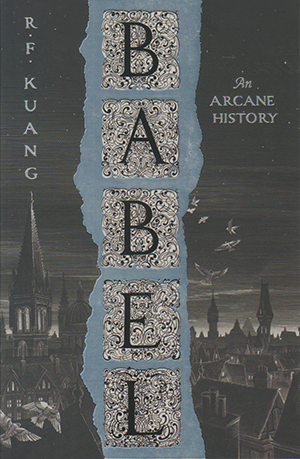


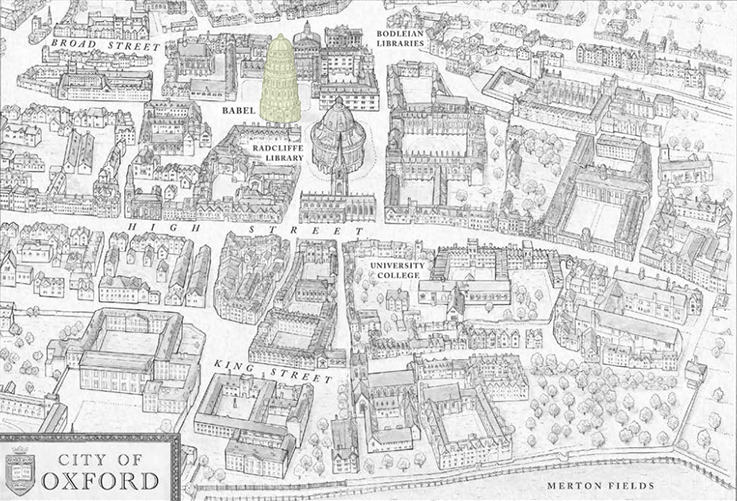

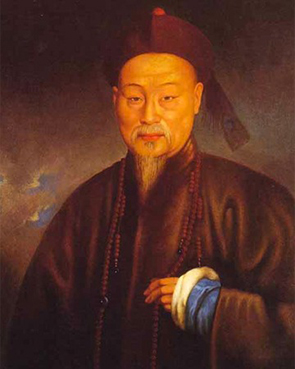
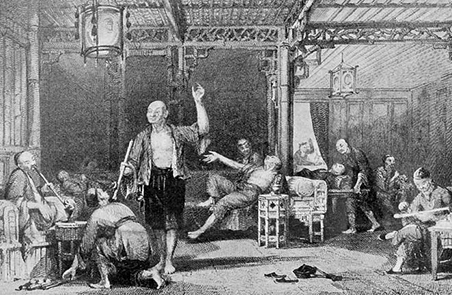
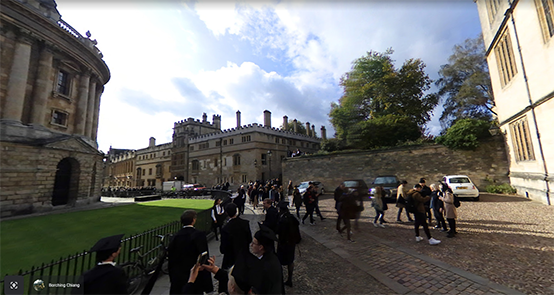
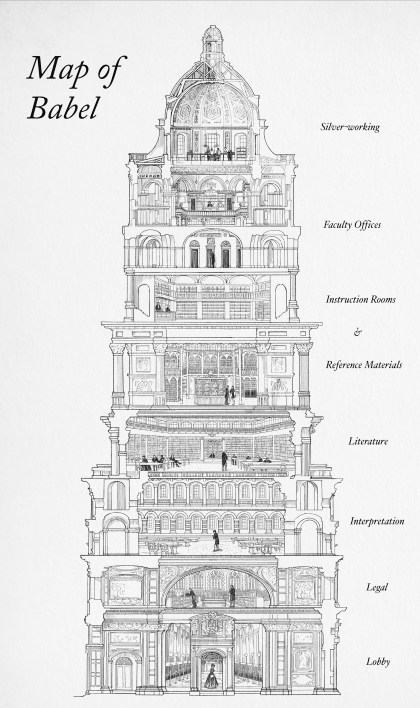


No one has commented yet. Be the first!